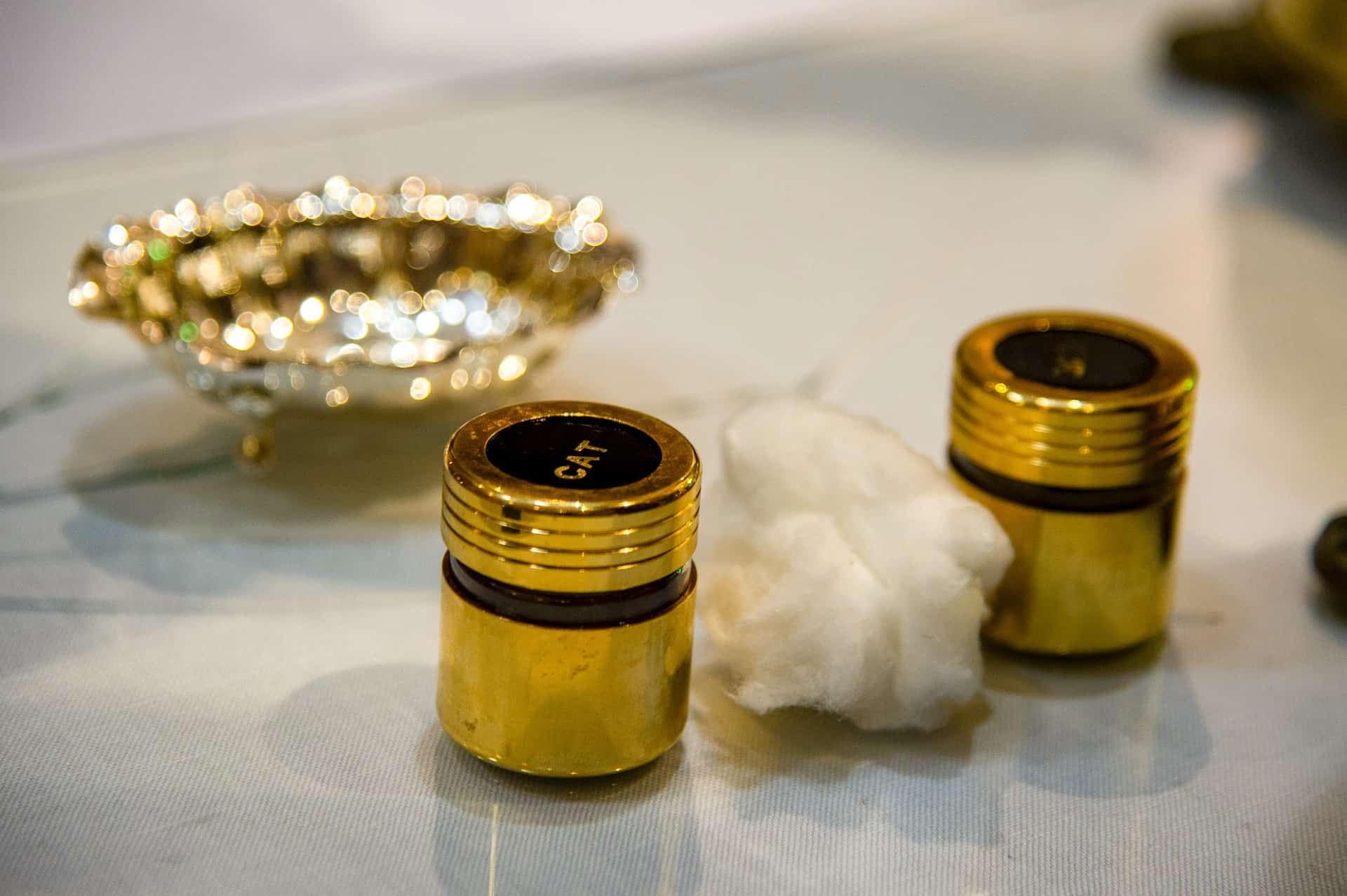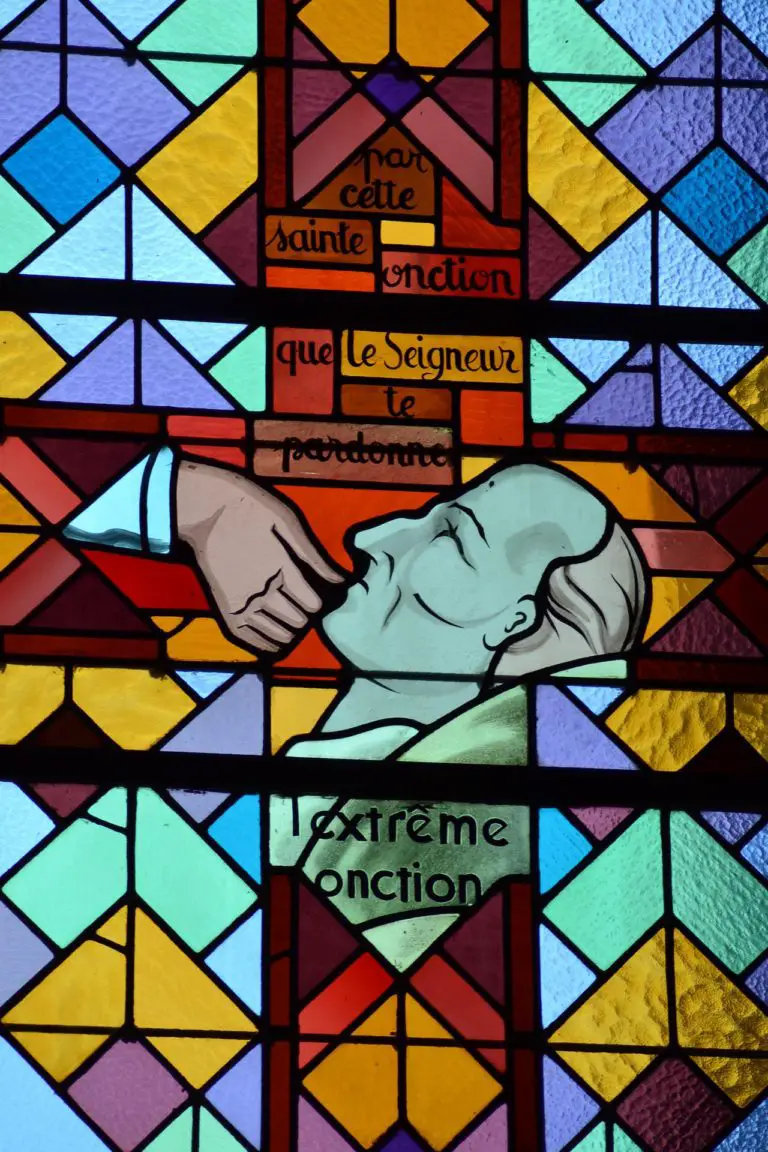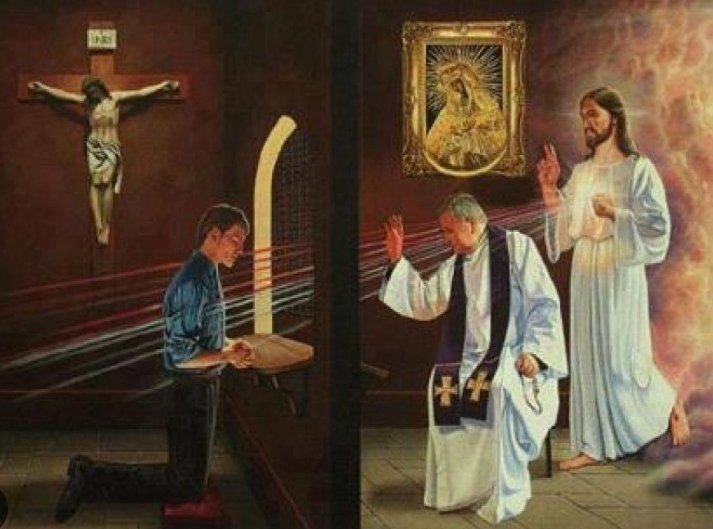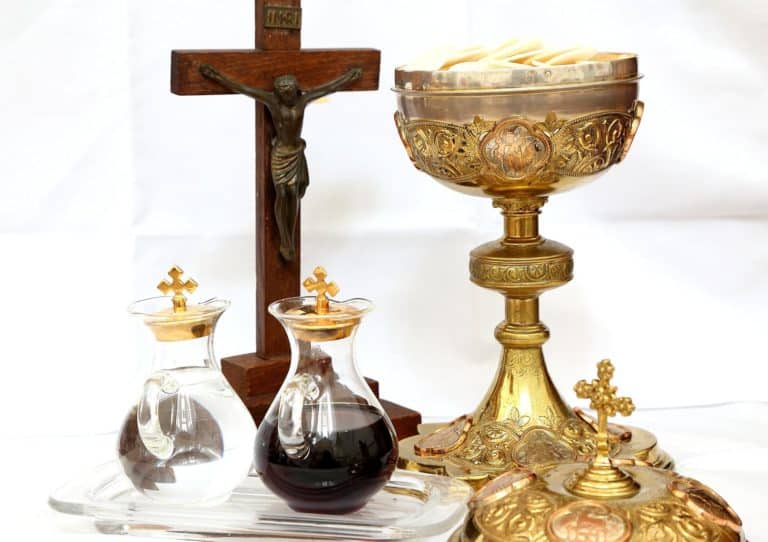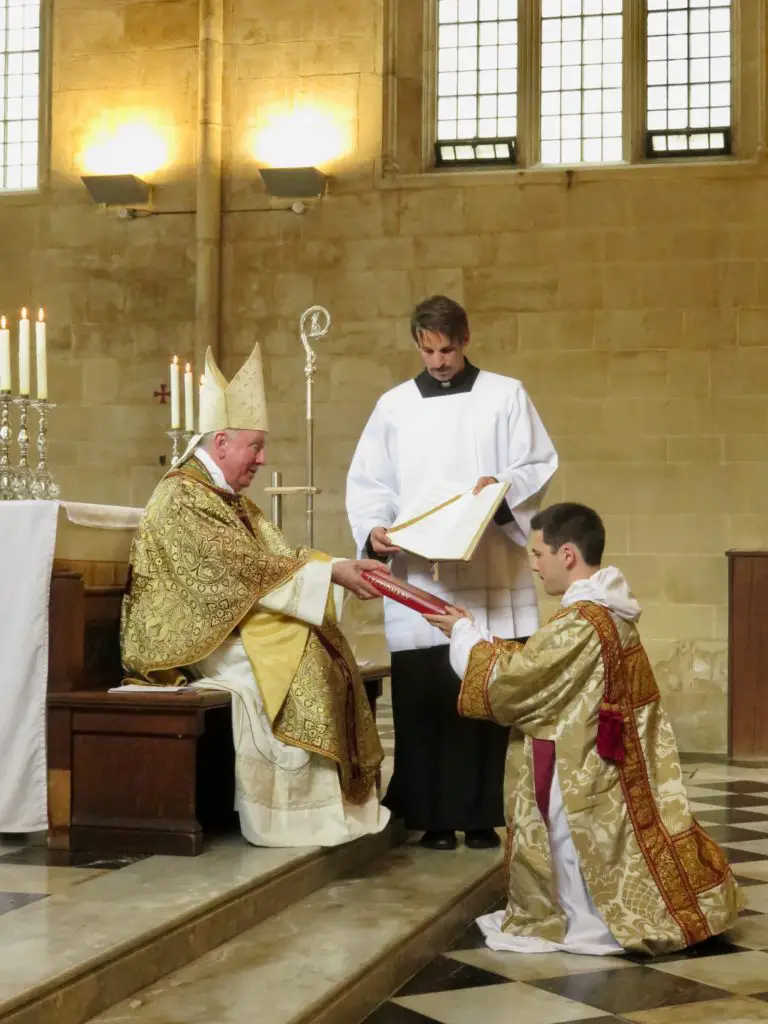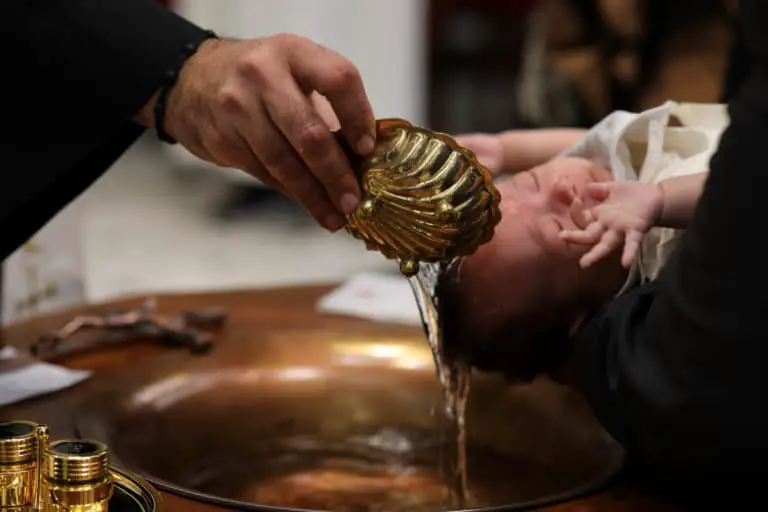What is the Sacrament of Confirmation?
The Sacrament of Confirmation forms part of the Sacraments of Initiation and is conferred to those Baptized. The recipient receives the Holy Spirit in His fullest and the gifts to be a soldier of Christ. The Sacrament of Confirmation was instituted by Jesus by promising the Paraclete (Helper) or Holy Spirit, and fulfilled at Pentecost.
The Sacrament of Confirmation was instituted by Jesus Christ when He promised to send the Holy Spirit (The Paraclete or Helper) (St John 14:15-21) at Pentecost (Acts 2: 3-4). Like Baptism and the Eucharist, Confirmation forms part of the Sacraments of Initiation. The Sacrament of Confirmation is necessary for the completion of baptismal grace, hence becoming true witnesses (Martyrs) and soldiers of Jesus Christ.
Where is Confirmation in the Bible?
The word “Confirmation” or “confirm” occurs several times in Sacred Scripture and used in several contexts including to “stand or make stand” in Greek histēmi; or “make firm or solid; establish” in Greek Stereoō; or “establish; confirm” in Greek bebaioō; or “confirmation” in Greek Bebaiōsis, or “confirm; make trustworthy; establish” again in Greek pistoō; or “in force; valid; firm” in Greek bebaios.

The Douay-Rheims contains 54 references on the use of the word “confirm” or “confirmed”.
Outside the Rite of Initiation through the Sacrament of Confirmation, the word is used in reference to give testimony, attest, provide evidence, proof, testament, or testimonial, give witness, also in the adjective sense, to corroborate, make certain of, to anoint and so on.
The coming of the Holy Spirit upon the Apostles and the Blessed Mother Mary at Pentecost is the confirmation of their role as witnesses, Apostles, hearers of the first word of the God made Man, Priesthood, and the many roles that the first receivers of the Holy Spirit would attest to.
The word confirmation, and now the Sacrament of Confirmation, is associated with the pouring down of the special gifts of the Holy Spirit which would confirm the Apostles, and in-turn, the Apostles conferred the Holy Spirit upon others, as instructed by Jesus.
Jesus had promised the helper or Paraclete in St John 14: 15-21 when He said:
“And I will ask the Father: and he shall give you another Paraclete, that he may abide with you forever:
The spirit of truth, whom the world cannot receive, because it seeth him not, nor knoweth him. But you shall know him; because he shall abide with you and shall be in you.
I will not leave you orphans: I will come to you. Yet a little while and the world seeth me no
more. But you see me: because I live, and you shall live. In that day you shall know that I am in my Father: and you in me, and I in you.
He that hath my commandments and keepeth them; he it is that loveth me. And he that loveth
me shall be loved of my Father: and I will love him and will manifest myself to him
(St John 14: 16-21).
However, Our Lord, did not send the Holy Spirit whilst He was present with the Apostles on earth but that He would need to Ascend into Heaven to send the Holy Spirit. Jesus says the following:
“But I tell you the truth: it is expedient to you that I go. For if I go not, the Paraclete will not come to you: but if I go, I will send him to you” (St John 16:7).
Through the promise of sending the Holy Spirit, Jesus henceforth, establishes the Sacrament of Confirmation.
Therefore, Confirmation is associated with the reception of the Holy Spirit.
What happened at the first Pentecost?

The Feast of Pentecost took place in the Jewish calendar as a feast of the Law of Moses, originally known as the Feast of Weeks (see Deuteronomy 16:10); or the Feast of Harvest (see Exodus 23:16).
Amongst the Greek speaking Jews, the feast came to be called Pentecost or penētkostē in Greek, which means ‘fiftieth” and refers to the festival that took place fifty days after the Passover celebration (see Leviticus 23: 15-16) where the Lord instructs the people through Moses, saying:
“You shall count therefore from the morrow after the sabbath, wherein you offered the sheaf of first fruits, seven full weeks. Even unto the morrow after the seventh week be expired, that is to say, fifty days: and so you shall offer a new sacrifice to the Lord.”
Since the Old Testament and the establishment of the Old Testament Laws, festive days and the many rituals and practices are all centered around the coming of the Messiah, therefore, the New Covenant would replace the old practices.
Jesus established the New Covenant upon the offering of His Body and Blood, sacrificed for all. Through this, Jesus established the Mass; the Priesthood; Baptism through water and the reception of the Holy Spirit i.e. Confirmation, all apart of the new Covenant and the Christian faith. However, we shall address the following questions:
- Where did Holy Spirit descend the Apostles and Mary?
- When did Holy Spirit descend the Apostles and Mary?
- How did Holy Spirit descend the Apostles and Mary?
- Why did Holy Spirit descend the Apostles and Mary?
Where did Holy Spirit descend upon the Apostles and Mary?
We read this in the account of the Acts of the Apostles Chapter 2, verses 1-47. They were all together in one place (Acts 2:1), this is the Upper House where they waited for the Holy Spirit, following Jesus’ Ascension into Heaven:
“And while they were beholding him going up to heaven, behold two men stood by them in white garments. Who also said: Ye men of Galilee, why stand you looking up to heaven? This Jesus who is taken up from you into heaven, shall so come as you have seen him going into heaven.
Then they returned to Jerusalem from the mount that is called Olivet, which is nigh Jerusalem, within a sabbath day’s journey. And when they were come in, they went up into an upper room, where abode Peter and John, James and Andrew, Philip and Thomas, Bartholomew and Matthew, James of Alpheus and Simon Zelotes and Jude the brother of James. All these were persevering with one mind in prayer with the women, and Mary the mother of Jesus, and with his brethren” (Acts 1:10-14).
When did Holy Spirit descend upon the Apostles and Mary?
It is following the days of Pentecost – the Jewish Festival (see Acts 2: 1).
“And when the days of the Pentecost were accomplished, they were all together in one place” (Acts 2:1).
How did Holy Spirit descend upon the Apostles and Mary?
I will allow the words of the Evangelist St Luke, the author of the Acts of the Apostles, to describe the event:
“And suddenly there came a sound from heaven, as of a mighty wind coming: and it filled the whole house where they were sitting. And there appeared to them parted tongues, as it were of fire: and it sat upon every one of them. And they were all filled with the Holy Ghost: … (Acts 2:2-4).
Why did Holy Spirit descend upon the Apostles and Mary?
It was the duty and the responsibility of the Apostles to be witnesses (martyrs) and to preach the words of Jesus through the world. This is the instruction that Jesus gave them at His Ascension into Heaven and is known as the Great Commissioning, when He said:
“And Jesus coming, spoke to them, saying: All power is given to me in heaven and in earth. Going therefore, teach ye all nations: baptizing them in the name of the Father and of the Son and of the Holy Ghost. Teaching them to observe all things whatsoever I have commanded you. And behold I am with you all days, even to the consummation of the world” (St Matthew 28: 18-20).
Again, at the end of the Gospel of St Mark we read:
“And he said to them: Go ye into the whole world and preach the gospel to every creature. He that believeth and is baptized shall be saved: but he that believeth not shall he condemned. And these signs shall follow them that believe: In my name they shall cast out devils. They shall speak with new tongues. They shall take up serpents: and if they shall drink any deadly thing, it shall not hurt them. They shall lay their hand upon the sick: and they shall recover. And the Lord Jesus, after he had spoken to them, was taken up into heaven and sitteth on the right hand of God. But they going forth preached everywhere: the Lord working withal, and confirming the word with signs that followed” (St Mark 16:15-20).
Finally in the Acts of the Apostles we read:
“And eating together with them, he commanded them, that they should not depart from Jerusalem, but should wait for the promise of the Father, which you have heard (saith he) by my mouth. For John indeed baptized with water: but you shall be baptized with the Holy Ghost, not many days hence. They therefore who were come together, asked him, saying: Lord, wilt thou at this time restore again the kingdom of Israel?
But he said to them: It is not for you to know the time or moments, which the Father hath put in his own power:
But you shall receive the power of the Holy Ghost coming upon you, and you shall be witnesses unto me in Jerusalem, and in all Judea, and Samaria, and even to the uttermost part of the earth.
And when he had said these things, while they looked on, he was raised up: and a cloud received him out of their sight. …” (Acts 1:1-9).
From these passages, the Apostles would be endowed with special gifts in carrying out the Jesus’ mission into the world. An example of these gifts is the gift of speaking in tongues, which is reserved to the Apostles and to those that the Holy Spirit assigns (which is rare). Here we read again in the Acts of the Apostles:
“Now there were dwelling at Jerusalem, Jews, devout men, out of every nation under heaven. And when this was noised abroad, the multitude came together, and were confounded in mind, because that every man heard them speak in his own tongue. And they were all amazed, and wondered, saying: Behold, are not all these that speak Galilean?
And how have we heard, every man our own tongue wherein we were born?
Parthians and Medes and Elamites and inhabitants of Mesopotamia, Judea, and Cappadocia, Pontus and Asia, Phrygia and Pamphylia, Egypt and the parts of Libya about Cyrene, and strangers of Rome, Jews also, and proselytes, Cretes, and Arabians: we have heard them speak in our own tongues the wonderful works of God.” (Acts 2:5-11).
Another of the gifts was evident is fortitude or courage as St Peter addresses the Jews with the following:
“Ye men of Israel, hear these words: Jesus of Nazareth, a man approved of God among you by miracles and wonders and signs, which God did by him, in the midst of you, as you also know: This same being delivered up, by the determinate counsel and foreknowledge of God, you by the hands of wicked men have crucified and slain” (Acts 2:22-23).
This was certainly an act of bravery as shown by Peter. As he continued to preach and testify, many were baptised and about three thousand were added to their numbers (Acts 2:41).
It would be worthwhile to read the entire Acts of the Apostles, Chapter 2 and see the works of the Holy Spirit. How foreign to read, witness and see this great wonder to the very men that showed many weaknesses and lack of understanding as they journey with their Lord and Saviour, Jesus Christ. Now they are the very witnesses, miracle workers, teachers, governors, and sanctifiers.
What happens at confirmation?
Whilst in Baptism the baptized receive the Holy Spirit (see article on Baptism), at the reception of the Sacrament of Confirmation there is a greater outpouring of the Holy Spirit. As with the Apostles and all the Christians throughout the ages, the baptized Christian becomes a soldier of Christ and a witness of the Gospel to the world. It becomes incumbent on all those that receive worthily and validly the Sacrament of Confirmation to fulfill this action in the world.
What is the ‘matter’ and ‘form’ of the Sacrament of Confirmation?
The Roman Rite (Western Catholic Church)
According to the Roman Rite of Canon Law Canon 880 the sacrament of Confirmation is conferred by the anointing of chrism (matter) on the forehead of the candidate and the imposition of hands (matter), followed by the words “I sign thee with the sign of the Cross, and I confirm thee with the chrism of salvation, in the name of the Father and of the Son and of the Holy Spirit” (form).
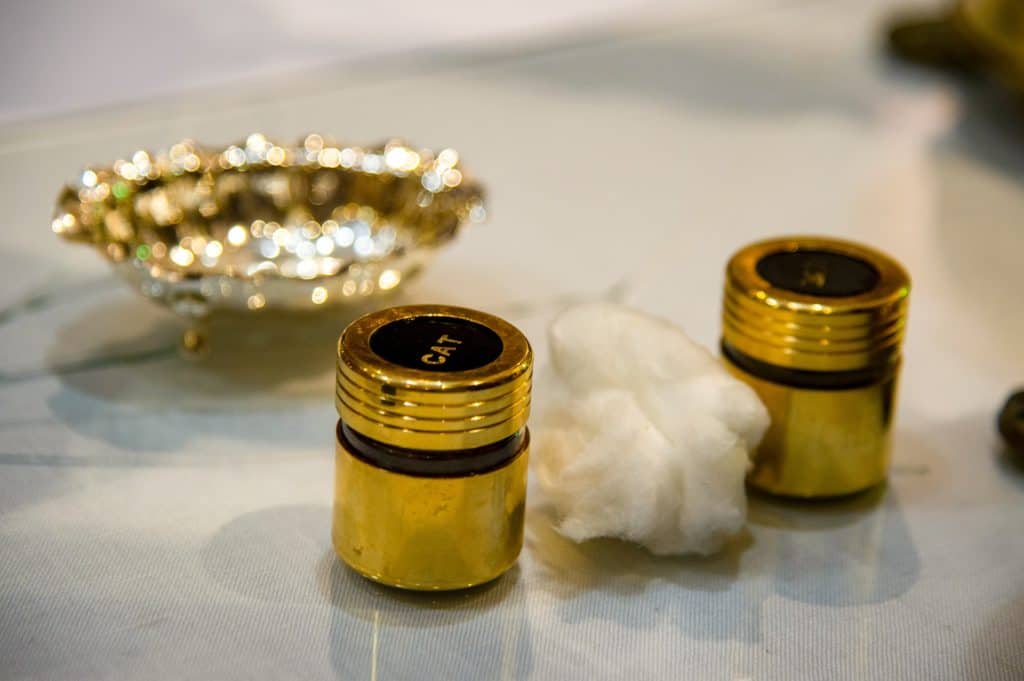
The Chrism used must be consecrated by a Bishop. This is a symbol of anointing and signifies that the person is established as wearing Christ and a soldier of Christ. One who will bear witness.
In Canon Law it states that the minister of the Sacrament is a Bishop and is the Ordinary Minister. A presbyter (or priest) is the extraordinary minister and by virtue of his faculties can administer the Sacrament of Confirmation. However, the responsibility should fall precisely on the Bishop and in person.
To receive the Sacrament of Confirmation validly a person must be validly baptized and not yet confirmed. It is also the requirement that candidates for the sacrament be prepared and instructed properly. The usual age is around 11 or 12 years or a suitable time when a person maybe in danger of death.
The confirmed, if possible, should have a sponsor, who takes care of the confirmed person in that they behave as true witness of Christ and fulfills faithfully the obligations of the sacrament.
The Eastern Rites (Eastern Church)
In the Eastern Church, which is the Eastern Rite, the Baptized receive the Sacrament of Confirmation as part of the Sacraments of Initiation. This is known as Chrismation and holy Myron is used.
Holy Myron, which is made from the oil of olives or other plants and from aromatics, is confected only by a bishop.
The minister of the Holy Myron within the traditions of the Eastern Churches, known as chrismation, is administered by a presbyter (priest) either in conjunction with baptism or separately.
What are the effects of the Sacrament of Confirmation?
The Sacrament of Confirmation places a character in our soul in that:
- we are likened to Jesus Christ.
- we confess publicly and officially the faith of Jesus Christ.
- we fight like soldiers of Jesus Christ in defending the faith and standing up for Jesus Christ and His Church.
- we are now adults in the Supernatural Order.
- we receive the necessary graces that strengthen us to profess and defend our faith.
- we are called to be witnesses i.e. maryrs (martys or martyreō in Greek). As a matter of fact, like the early Apostles and disciples of Jesus (and many today), we are called up to die as martyrs.
Whilst the chrism placed on the forehead of the candidate disappears, the newly confirmed has now a permanent character and will remain for ever; and, all during life, it will give a right to the graces necessary to be a worthy soldier of Christ.
At the Sacrament of Confirmation, the recipient receives the gifts that will assist him or her to fulfill these actions in the world.
The Catholic Church teaches, and this is taken from Isaiah 11:2-3, that there are Seven Gifts of the Holy Spirit:
“And the spirit of the Lord shall rest upon him: the spirit of wisdom, and of understanding, the spirit of counsel, and of fortitude, the spirit of knowledge, and of godliness (piety*). And he shall be filled with the spirit of the fear of the Lord”
(*Please note emphases in the brackets is my own.)
What are the seven gifts of the Holy Spirit?
The seven gifts of the Holy Spirit are wisdom, understanding, counsel, fortitude, knowledge, piety, and fear of the Lord.
They belong in their fullness to Christ, Son of David. They complete and perfect the virtues of those who receive them. They make the faithful docile in readily obeying divine inspirations. (CCC450).
In addition to these Seven Gifts of the Holy Spirit there are twelve fruits of the Holy Spirit.
What are the twelve fruits of the Holy Spirit?
These twelve fruits of the Holy Spirit are perfections that the Holy Spirit forms in us as the first fruits of eternal glory. Traditionally the Church lists:
charity, joy, peace, patience, kindness, goodness, generosity, gentleness, faithfulness, modesty, self-control, chastity. (CCC451).
These come to us from the letter of St Paul to the Galatians where he states:
“But the fruit of the Spirit is, charity, joy, peace, patience, benignity [kindness*], goodness, longanimity [patience*], mildness [gentleness*], faith, modesty, continency [self-control*], chastity.
(*Please note emphases in the brackets is my own.)
Against such there is no law. And they that are Christ’s have crucified their flesh, with the vices and concupiscence. If we live in the Spirit, let us also walk in the Spirit. Let us not be made desirous of vain glory, provoking one another, envying one another” (Galatians 5:22-26).
How does the newly confirmed put in action the Sacrament of Confirmation?
Confirmation and Catholic Action.
The Sacrament of Confirmation, once received, the recipient may or may not be aware of how the Holy Spirit works in their everyday life.
The fundamental purpose of confirmation is to make us act as Christ’s soldiers, defending Jesus, the faith and morals of the Catholic Church.
As children, we busy ourselves in an egotistical way, with what concerns our needs and wants. As we grow to adult life, we encounter and see life from a different lens. The newly Confirmed are duty bound to continue to nurture his/her knowledge, understanding and wisdoms in the defence of Christ and His Church. The newly confirmed is required to spread the faith to those he/she encounters, even if only to those God has placed in their immediate care or close family and friends. The courage (fortitude) is one of the gifts of the Holy Spirit that is now activated at Confirmation, calls for a true witness, even if it means martyrdom, for Jesus.
The confirmed is lifted from the infant stage of the supernatural life into the adult stage of the supernatural life. Putting all the gifts now received into practice.
Pope Pius XII states:
“By the chrism of confirmation, the faithful are given added strength to protect and defend the Church, their mother, and the faith She has given them.”
The Church is militant and not some passive entity, the Church and its’ soldiers must fight for the Church, our mother; fight in defending the faith and morals; and fight for Our Lord, His Mother and the Heavenly bodies we call the Church Triumphant.
For if we wish to be worthy citizens of Heaven, we need to meet the necessary criteria on earth.
What can I do, you may ask!
Through the Sacrament of Confirmation and living a life in grace i.e. regular confession and Holy Communion, you have God, His Mother, Saint Joseph, all the Saints and Angels behind you. You have all heard the saying, “you and which army”. We can be confident in this!
We have been given the Seven Gifts of the Holy Spirit to assist us in defending our faith.
- Regular Confession.
- Regular Holy Communion by attending Mass as often as possible, a least every Sunday and Holy Days of Obligation.
- Allow yourself to learn and discover the Catholic faith.
- Develop a prayer life, especially the Holy Rosary. Keep in mind that the Rosary is a meditation on the Scriptures.
- Read a chapter of the bible daily.
- Live a moral life away from the occasions of sin.
- Join Catholic groups for example Catholic pro-life.
- Live the Corporal and Spiritual Works of Mercy.
- If you are married, love, teach, respect and take interest in your spouse and children.
- Live a chaste and celibate life in accordance with your state of life.
- Do not shy away from correcting when you see or hear something that doesn’t adhere to the faith and moral teaching of the Catholic Church. Always be charitable.
- Be willing to speak up and again with charity.
- Remember clarity is charity.
- Ask you local Priest as to how you can be involved in the Church life but keep in mind you duties to the married life should you be married.
Yes, it is a struggle, but we are called to be witnesses (martyrs) by virtue of the Sacrament of Confirmation and our Baptismal calling. Love and live your life unashamedly and at the end of your life you will hear the words from the Almighty Judge and Master:
“Well done, good and faithful servant: because thou hast been faithful over a few things, I will place thee over many things. Enter thou into the joy of thy lord.” (St Matthew 25:23)
